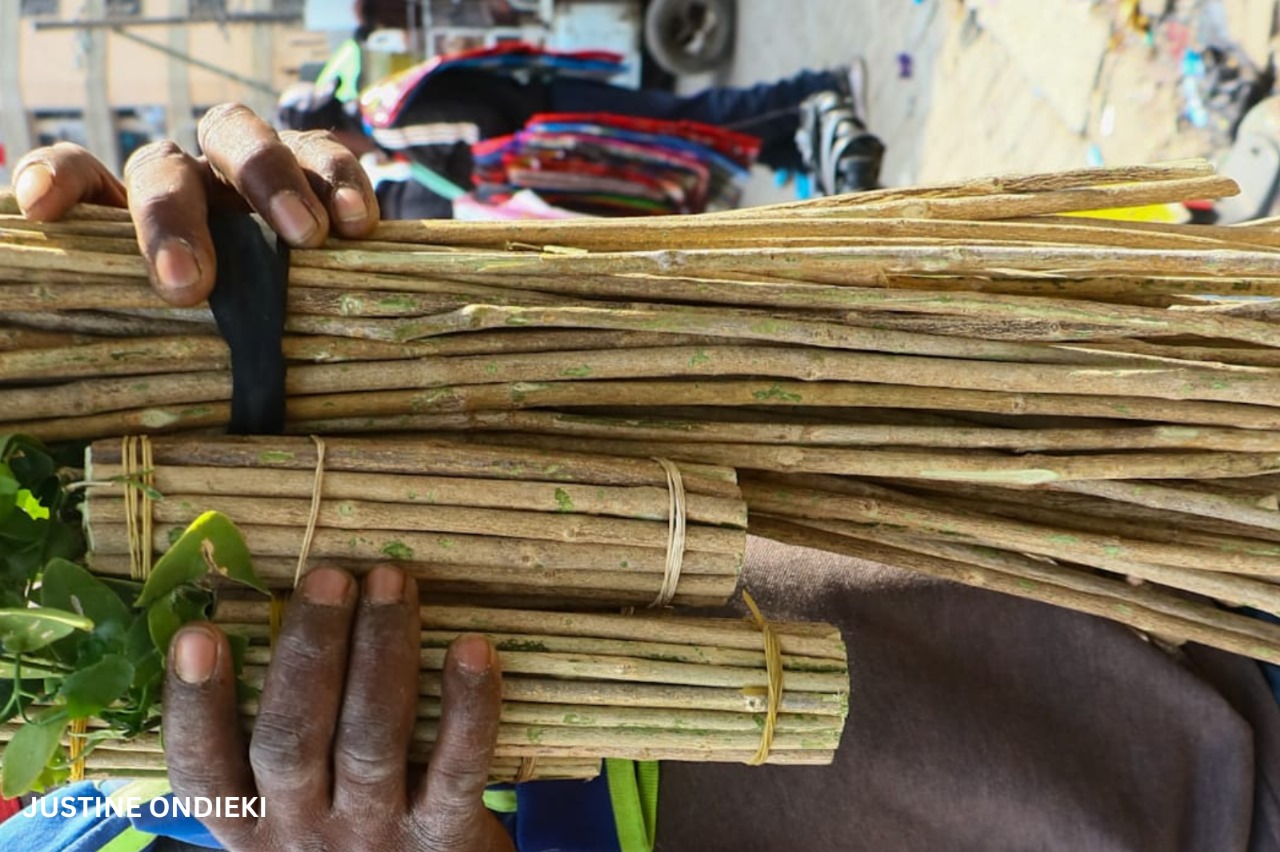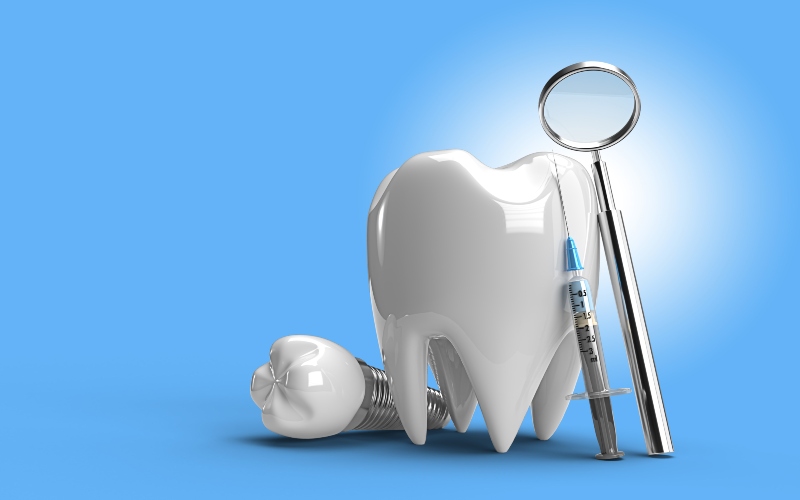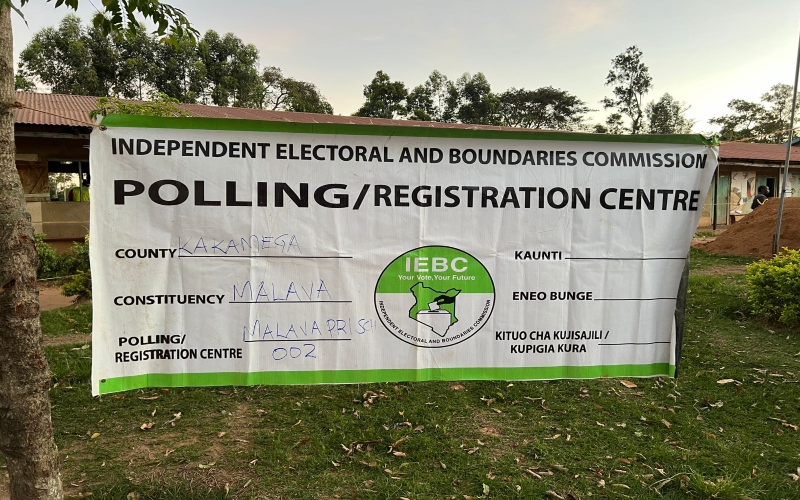‘Caday’: The enduring natural toothbrush preferred by Somalis

The branches and roots remain popular due to their medicinal advantages in maintaining oral health.
Oral hygiene is a cherished practice across many cultures.
Traditionally, people used branches or roots of specific trees to clean their teeth.
More To Read
Despite the advent of modern toothbrushes, many residents in Eastleigh, including Somalis and other cultures, still prefer using natural alternatives to clean their teeth.
Known as "caday" by the Somali community, these branches and roots remain popular due to their medicinal advantages in maintaining oral health.
Abdi Malik, a resident of Eastleigh, prefers to brush his teeth using caday because Prophet Muhammad recommended it in his teachings.
"I have grown up using caday, and our entire household still uses it, alongside modern toothbrushes when needed for a thorough cleaning," said Abdi.
He shares that Prophet Muhammad emphasised oral hygiene in the Quran, advocating for teeth and gum care through brushing and rinsing the mouth with water at least three times a day. "Prophet Muhammad's teachings on hygiene inspire me to maintain these habits," Abdi added.
However, he notes that scarcity sometimes hinders regular use, as few designated places are selling it, and it's not always readily available.
"Often, we rely on hawkers who sell Caday near the mosque or walk around with it. I buy and keep some," Abdi explained.
Caday typically costs between Sh10 to Sh20, depending on its quality, with many preferring the roots for their dental care routines.
 A wawker displays the caday, a traditional toothbrush in Eastleigh. (Photo: Justine Ondieki)
A wawker displays the caday, a traditional toothbrush in Eastleigh. (Photo: Justine Ondieki)
Mohamed Ismail, also a resident of Eastleigh, prefers using caday as his toothbrush along with toothpaste.
"I love the roots of caday because provide a better clean. You can't rush the process; you have to take your time and clean your teeth when you're most relaxed and not in a hurry," said Mohamed.
He mentions that he has sensitive teeth, and using the roots helps prevent injury.
Oral hygiene
"I use caday a lot, every day, as part of my oral hygiene. I buy them from hawkers, and many know my shop and bring them to me regularly," Mohamed explained. However, he notes that the roots are scarce, with many hawkers only having the branches, which are not as soft as the roots.
Joshua Lemayian, a frequent hawker in Eastleigh, shares his experience selling traditional toothbrushes to the locals.
"Many people think that only Somalis use this toothbrush, but a variety of locals buy the product to clean their teeth. I also use the branches to clean my teeth," said Lemayian.
He explained that the trees used to make these toothbrushes, primarily grow in areas like Garissa and Maasai land.
Hawkers like Lemaiyan cut the branches and roots, then bring them to Eastleigh to sell.
"So far, the branches are more accessible and readily available than the roots. That's why we sell more branches. A small cut piece goes for Sh10," Lemaiyan says.
 A wawker displays the caday, a traditional toothbrush in Eastleigh. (Photo: Justine Ondieki)
A wawker displays the caday, a traditional toothbrush in Eastleigh. (Photo: Justine Ondieki)
He says he hawks the toothbrushes in different areas of Eastleigh, where he has built a loyal customer base. Many of his clients know him well, so he ensures to bring the toothbrushes to them regularly.
"In addition to selling in various spots, I have regular clients who know me, and I make sure to deliver to them consistently," Lemayian added.
According to Nasra Gaab, a dentist in Eastleigh, many people neglect proper oral hygiene, especially between meals.
"Many people brush their teeth before breakfast and don't brush in between meals, leaving food particles that expose them to cavities," said Nasra.
She explained that brushing with caday, a practice common in Somali culture, allows for more thorough cleaning compared to a rushed process. However, she emphasises the importance of using toothpaste with fluoride.
"When using the wooden toothbrush, you brush each tooth individually, which provides better cleaning and ensures all particles are removed.
Many people still use regular toothpaste but clean with caday during the day, which offers better cleaning compared to brushing only in the morning," Nasra noted. She highlights the importance of cleaning teeth after eating to remove food particles.
The ongoing challenge of tooth cavities and oral health burdens affect millions globally, with 2.5 billion people impacted.
The Kenya National Oral Health Strategic Plan 2022 – 2026 reveals that 90 per cent of all Kenyans are affected by oral health conditions.
According to the World Health Organisation (WHO), more than 480 million people in the African region suffer from oral health conditions.
Untreated dental caries of permanent teeth is one of the most prevalent diseases in the region, with approximately 25 per cent of the population experiencing decay of their permanent teeth.
Additionally, the prevalence of dental fluorosis in children stands at 41.4 per cent, while 34.3 per cent of adults suffer from dental caries, according to the Ministry of Health.
On a global scale, untreated dental caries is the most prevalent condition, impacting an estimated 2.5 billion people.
Severe gum disease can lead to total tooth loss and affects around 1 billion individuals worldwide. The World Health Organization (WHO) reports approximately 380,000 new cases of oral cancer each year.
Top Stories Today
















































